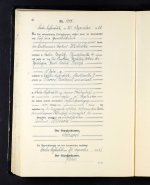Taphrospilus
Well-known member
Petrochelidon preussi (Reichenow, 1898) OD 6, 1898 - Ornithologische Monatsberichte - Biodiversity Heritage Library
Ploceus preussi (Reichenow, 1893) OD ser.4:Jahrg.40=no.197-198 (1892) - Journal für Ornithologie - Biodiversity Heritage Library
Cinnyris reichenowi preussi Reichenow, 1892 OD ser.4:Jahrg.40=no.197-198 (1892) - Journal für Ornithologie - Biodiversity Heritage Library
Onychognathus walleri preussi Reichenow, 1892 OD ser.4:Jahrg.40=no.197-198 (1892) - Journal für Ornithologie - Biodiversity Heritage Library
Graucalus preussi Reichenow, 1892 OD ser.4:Jahrg.40=no.197-198 (1892) - Journal für Ornithologie - Biodiversity Heritage Library
Campephaga preussi Reichenow, 1899 OD 7, 1899 - Ornithologische Monatsberichte - Biodiversity Heritage Library

 birdsoftheworld.org
birdsoftheworld.org
If Paul Preuß (Botaniker) – Wikipedia is correct Paul Rudolph Preuß. But looks solidly researched so why not the additional name and the ß versus ss.
His death record and other documents suggest as well the additional name. From the documents I would write his last name Preuss and not Preuß.
Feel free to correct me or add any additional information about him.
Not birds:
He was West Prussian and not Poland born even if the town Toruń is today part of Poland.
Ploceus preussi (Reichenow, 1893) OD ser.4:Jahrg.40=no.197-198 (1892) - Journal für Ornithologie - Biodiversity Heritage Library
Cinnyris reichenowi preussi Reichenow, 1892 OD ser.4:Jahrg.40=no.197-198 (1892) - Journal für Ornithologie - Biodiversity Heritage Library
Onychognathus walleri preussi Reichenow, 1892 OD ser.4:Jahrg.40=no.197-198 (1892) - Journal für Ornithologie - Biodiversity Heritage Library
Graucalus preussi Reichenow, 1892 OD ser.4:Jahrg.40=no.197-198 (1892) - Journal für Ornithologie - Biodiversity Heritage Library
Campephaga preussi Reichenow, 1899 OD 7, 1899 - Ornithologische Monatsberichte - Biodiversity Heritage Library
The Eponym Dictionary of Birds
A comprehensive dictionary listing all the people whose names are commemorated in the English and scientific names of birds.Birdwatchers often come across bird names that include a person's name, either in the vernacular (English) name or latinised in the scientific nomenclature. Such names are...
books.google.de
Preuss's Weaver Ploceus preussi Reichenow, 1892
Preuss's Cliff Swallow Petrochelidon preussi Reichenow, 1898
African Cuckooshrike sp. Campephaga preussi Reichenow, 1899 NCR [Alt. Purple-throated Cuckooshrike; JS Campephaga quiscalina]
Grey Cuckooshrike ssp. Coracina caesia preussi Reichenow, 1892 NCR [NUI Coracina caesia pura]
Preuss's Double-collared Sunbird Cinnyris reichenowi preussi Reichenow, 1892 [Alt. Northern Double-collared Sunbird ssp.]
Waller's Starling ssp. Onychognathus walleri preussi Reichenow, 1892
Professor Paul Preuss (1861–1926) was a Poland-born German naturalist, botanist and horticulturist. He collected in He collected in West Africa (1886–1898), New Guinea (c.1903) and again in West Africa (1910). He was a member of Zintgraff's (1888– 1891) military expedition to explore the interland of Cameroon, then a German colony. Whilst storming a native village, the troop commander was killed and the second-incommand severely wounded; Preuss took over command and led the remaining troops back to the coast. He constructed the botanical gardens of Victoria (Limbe) , Cameroon (1901), being employed by the colonial government. Three mammals, an amphibian and a reptile are named after him.
The Key to Scientific Names - Birds of the World
Species accounts for all the birds of the world.
Paul Preuss (1861-1926) German botanist, collector in West Africa 1886-1888 (syn. Campephaga quiscalina, syn. Ceblepyris caesius purus, syn. Chlorophoneus multicolor, subsp. Cinnyris reichenowi, subsp. Onychognathus walleri, Petrochelidon, Ploceus).
If Paul Preuß (Botaniker) – Wikipedia is correct Paul Rudolph Preuß. But looks solidly researched so why not the additional name and the ß versus ss.
His death record and other documents suggest as well the additional name. From the documents I would write his last name Preuss and not Preuß.
Feel free to correct me or add any additional information about him.
Not birds:
- Myosorex preussi Matschie, 1893 OD 1893 - Sitzungsberichte der Gesellschaft Naturforschender Freunde zu Berlin - Biodiversity Heritage Library
- Cercopithecus preussi Matschie, 1898 OD 1898 - Sitzungsberichte der Gesellschaft Naturforschender Freunde zu Berlin - Biodiversity Heritage Library
- Piliocolobus preussi Matschie, 1900 OD 1900 - Sitzungsberichte der Gesellschaft Naturforschender Freunde zu Berlin - Biodiversity Heritage Library
- Werneria preussi (Matschie, 1893) OD 1893 - Sitzungsberichte der Gesellschaft Naturforschender Freunde zu Berlin - Biodiversity Heritage Library
- Toxicocalamus preussi Sternfeld, 1913 OD 1913 - Sitzungsberichte der Gesellschaft Naturforschender Freunde zu Berlin - Biodiversity Heritage Library
He was West Prussian and not Poland born even if the town Toruń is today part of Poland.





